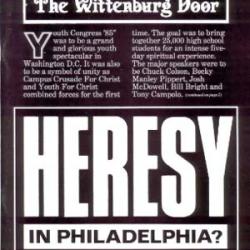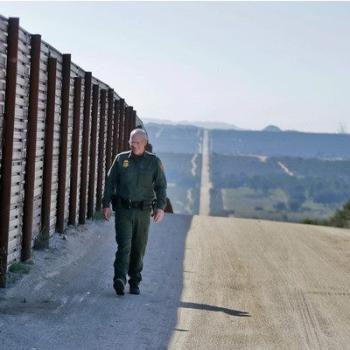I haven’t seen Prince Caspian yet, but since it was the “No. 1 Movie” this weekend, let’s revisit what that wonderful little book was about:
Prince Caspian is about beer.
Here is C.S. Lewis elsewhere (in Mere Christianity) in defense of one of his favorite things:
It is a mistake to think that Christians ought all to be teetotalers; [Islam], not Christianity, is the teetotal religion.
Of course it may be the duty of a particular Christian, or of any Christian, at a particular time, to abstain from strong drink, either because he is the sort of man who cannot drink at all without drinking too much, or because he is with people who are inclined to drunkenness and must not encourage them by drinking himself. But the whole point is that he is abstaining, for a good reason, from something which he does not condemn and which he likes to see other people enjoying. One of the marks of a certain type of bad man is that he cannot give up a thing himself without wanting every one else to give it up. That is not the Christian way. An individual Christian may see fit to give up all sorts of things for special reasons — marriage, or meat, or beer, or the cinema; but the moment he starts saying the things are bad in themselves, or looking down his nose at other people who use them, he has taken the wrong turning.
Lewis enjoyed meat and the cinema, and he later came to appreciate marriage, but the motivating passion for the passage above has to do with that other thing. Lewis loved his beer and defended it fiercely.
The same point, often expressed with a grumpy impatience, can be found repeatedly throughout Lewis’ popular devotional writing. Lewis saw that many Christians — particularly American Christians — were trying to take away his beer and he wasn’t going to stand for that. In Mere Christianity he refers to such Christians as “a certain type of bad man.” In Prince Caspian, Lewis gives these anti-beer Christians another name: “Telmarines.”
When the Telmarines came to Narnia, they banished all the wild things — the talking beasts, the dwarves and centaurs, the dryads and naiads and magical creatures of every sort. Old Narnians have been driven underground, literally. The Pevensies arrive to right that wrong, with the help of Aslan himself.
And lest readers miss the point, Aslan’s return and restoration is accompanied at every turn by fat old Bacchus, calling out “Refreshments! Time for refreshments!” It is Bacchus who, at Aslan’s bidding, tears down the bridge that symbolizes and enables the rule of the Telmarine King Miraz. And it is old, pagan Bacchus whose wine restores to health the old nurse who had surreptitiously taught a young Caspian about the wild ways of Old Narnia.
I grew up, as Caspian did, among the Telmarines. Lewis’ story was, to me, like those tales the old nurse told the young prince — a secret, forbidden glimpse of something older, wilder and more joyous.
I read all of the Narnia books again and again, with the unwavering approval of my Telmarine teachers at school and Sunday school. By the third or fourth time I read Prince Caspian I began to realize that this approval was due to those teachers not having read this book. It was about them, and I doubt they would have approved if they had understood that.














